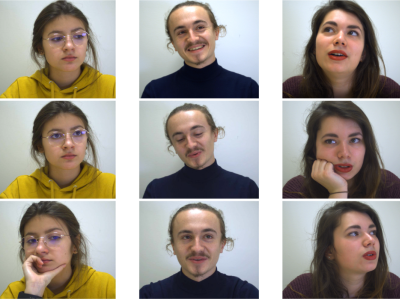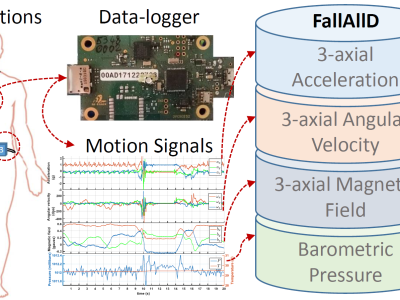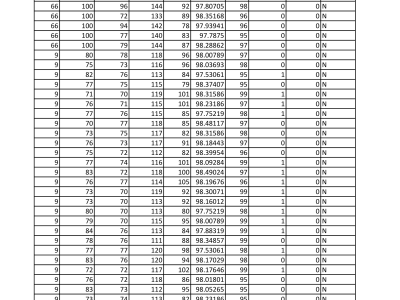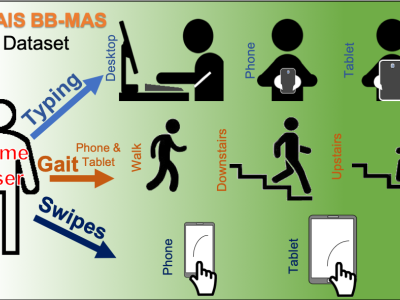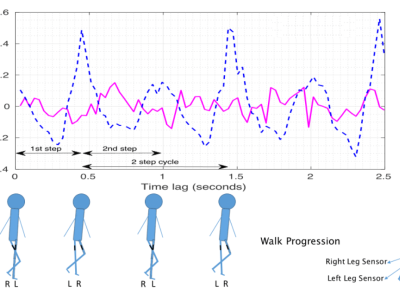TST Footwear-Based dataset for Fall Detection (TST FB4FD)
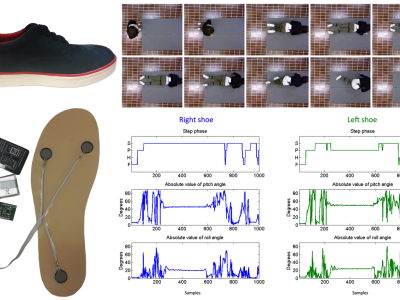
- Citation Author(s):
-
Susanna SpinsanteEnnio GambiLaura MontaniniDavide Perla,Antonio Del Campo
- Submitted by:
- Laura Montanini
- Last updated:
- DOI:
- 10.21227/H2W01S
- Data Format:
- Research Article Link:
- Links:
 2148 views
2148 views
- Categories:
- Keywords:
Abstract
The TST FB4FD dataset contains data acquired through a pair of smart shoes. The smart shoes are specifically designed for fall detection purposes and are equipped respectively with 3 Force Sensing Resistors (FSRs) and an inertial unit. More specifically, the dataset consists of 32 different falls and 8 activities of daily living (ADLs) performed by 17 healthy subjects aged between 21 and 55 years, for a total of 544 falls and 136 ADLs sequences .
Instructions:
TST FB4FD is fully available at the following link: http://www.tlc.dii.univpm.it/blog/footwear-based-dataset-for-fall-detection-tstfb4fd
The dataset consists in 17 folders, named with the user ID to which they refer.
Each folder is structured as follow:
Acquisitions:
ADLs:
APBE: Pick up an object on the floor with bending.
APBEST: The subject is standing, bends, picks up an object on the floor, and then stands up again.
APBEWK: The subject walks, bends, picks up an object on the floor, and then stands up again.
APSQ: Pick up an object on the floor with squatting.
APSQST: The subject is standing, squats, picks up an object on the floor, and then stands up again.
APSQWK: The subject walks, squats, picks up an object on the floor, and then stands up again.
ASCH: Sit and get up from the chair.
ASCHST: The subject is standing, sits on a chair, and then stands up again.
ASCHWK: The subject walks, sits on a chair, and then stands up again.
ASSO: Sit and get up from the couch.
ASSOST: The subject is standing, sits on a couch, and then stands up again.
ASSOWK: The subject walks, sits on a couch, and then stands up again.
Falls:
FBELFR: Backward falls, finishing lying.
FBELFRST: The subject is standing, falls backwards, and remains on the ground.
FELFRSTRC: The subject is standing, falls backwards, stays on the ground for a while and then gets up again.
FBELFRWK:
FBELFRWKRC:
FBESFR: Backward falls, finishing sitting.
FBESFRST: The subject is standing, falls backwards, and remains on the ground.
FBESFRSTRC: The subject is standing, falls backwards, stays on the ground for a while and then gets up again.
FBESFRWK: The subject walks, falls backward, and remains on the ground.
FBESFRWKRC: The subject walks, falls backward, stays on the ground for a while and then gets up again.
FFELFR: Forward falls, finishing lying.
FFELFRST: The subject is standing, falls forwards, and remains on the ground.
FFELFRSTRC: The subject is standing, falls forwards, stays on the ground for a while and then gets up again.
FFELFRWK: The subject walks, falls forwards, and remains on the ground.
FFELFRWKRC: The subject walks, falls forwards, stays on the ground for a while and then gets up again.
FFOKCH: Forward falls on the knees grabbing the chair.
FFOKCHST: The subject is standing, falls forwards, and remains on the ground, grabbing the chair.
FFOKCHSTRC: The subject is standing, falls forwards, stays on the ground grabbing the chair for a while, and then gets up again.
FFOKCHWK: The subject walks, falls backward, and remains on the ground, grabbing the chair.
FFOKCHWKRC: The subject walks, falls backward, stays on the ground grabbing the chair for a while, and then gets up again.
FFOKFR:Forward falls on the knees.
FFOKFRST: The subject is standing, falls forwards, and remains on the ground.
FFOKFRSTRC: The subject is standing, falls forwards, stays on the ground for a while and then gets up again.
FFOKFRWK: The subject walks, falls forwards, and remains on the ground.
FFOKFRWKRC: The subject walks, falls forwards, stays on the ground for a while and then gets up again.
FFOKSO: Forward falls on the knees grabbing the sofa.
FFOKSOST: The subject is standing, falls forwards, and remains on the ground, grabbing the sofa.
FFOKSOSTRC: The subject is standing, falls forwards, stays on the ground grabbing the sofa for a while, and then gets up again.
FFOKSOWK: The subject walks, falls forwards, and remains on the ground, grabbing the sofa.
FFOKSOWKRC: The subject walks, falls forwards, stays on the ground grabbing the sofa for a while and then gets up again.
FSLEFR: Left side falls.
FSLEFRST: The subject is standing, falls on the left side, and remains on the ground.
FSLEFRSTRC: The subject is standing, falls on the left side, stays on the ground for a while and then gets up again.
FSLEFRWK: The subject walks, falls on the left side, and remains on the ground.
FSLEFRWKRC: The subject walks, falls on the left side, stays on the ground for a while and then gets up again.
FSRIFR: Right side falls.
FSRIFRST: The subject is standing, falls on the right side, and remains on the ground.
FSRIFRSTRC: The subject is standing, falls on the right side, stays on the ground for a while and then gets up again.
FSRIFRWK: The subject walks, falls on the right side, and remains on the ground.
FSRIFRWKRC: The subject walks, falls on the right side, stays on the ground for a while and then gets up again.
In each of these sub-folders contains a .txt file, in which each row represents an acquisition. The acquisitions occur every 10 ms for both shoes.
Each line contains the following fields in order:
fsr1_l: output voltage value acquired by FSR1, applied on the left heel;
fsr2_l: output voltage value acquired by FSR2, applied on the left 1st metatarsal head;
fsr3_l: output voltage value acquired by FSR3, applied on the left 5th metatarsal
head;fsr1_r: output voltage value acquired by FSR1, applied on the right heel;
fsr2_r: output voltage value acquired by FSR2, applied on the right 1st metatarsal head;
fsr3_r: output voltage value acquired by FSR3, applied on the right 5th metatarsal
head;accel_x_r: accelerometer reading on the x axis of the right shoe;
accel_y_r: accelerometer reading on the y axis of the right shoe;
accel_z_r: accelerometer reading on the z axis of the right shoe;
mag_x_r: magnetometer reading on the x axis of the right shoe;
mag_y_r: magnetometer reading on the y axis of the right shoe;
mag_z_r: magnetometer reading on the z axis of the right shoe;
gyro_x_r: gyroscope reading on the x axis of the right shoe;
gyro_y_r: gyroscope reading on the y axis of the right shoe;
gyro_z_r: gyroscope reading on the z axis of the right shoe;
accel_x_l: accelerometer reading on the x axis of the left shoe;
accel_y_l: accelerometer reading on the y axis of the left shoe;
accel_z_l: accelerometer reading on the z axis of the left shoe;
mag_x_l: magnetometer reading on the x axis of the left shoe;
mag_y_l: magnetometer reading on the y axis of the left shoe;
mag_z_l: magnetometer reading on the z axis of the left shoe;
gyro_x_l: gyroscope reading on the x axis of the left shoe;
gyro_y_l: gyroscope reading on the y axis of the left shoe;
gyro_z_l: gyroscope reading on the z axis of the left shoe.


